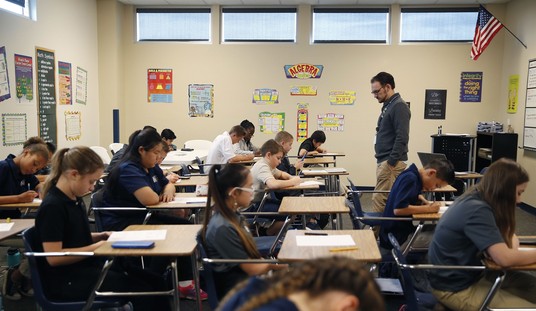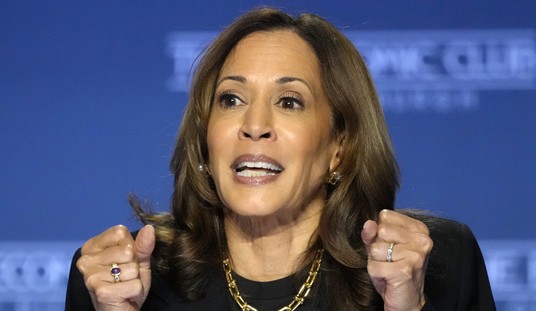After a third American was beheaded by ISIS, the Obama administration confirms it’s reviewing its policy on bargaining for hostages.
But exactly what could change as far as ransoms or other concessions granted in exchange for Americans is extremely vague at this point.
Peter Kassig, a former U.S. Army Ranger turned humanitarian aid worker, was kidnapped in Raqqa in October 2013. The 26-year-old Indiana native did not deliver any scripted text before the camera, such as the statements journalists James Foley and Steve Sotloff were forced to read.
Some believe he was living by the Ranger creed up until the end: “Surrender is not a Ranger word… under no circumstances will I ever embarrass my country.” There’s also speculation that he may have been killed in an airstrike before the video was released, or fought back against his execution thus resulting in an edited video release. His severed head was displayed but not his body.
ISIS has executed U.S. and British hostages whose countries have a longstanding policy of not negotiating with terrorists. Other European countries have gotten hostages back in exchange for ransom payouts; the Treasury Department said last month that ISIS had raked in about $20 million this year in ransoms. Though the administration traded five senior Taliban prisoners for the release of Sgt. Bowe Bergdahl in May, Foley’s mother said she was threatened with prosecution if she tried to raise funds for her son’s ransom.
White House press secretary Josh Earnest said today that President Obama ordered a review of the U.S. hostage policy “over the summer.”
“Given sort of the extraordinary nature of some of the hostage takings that we’ve seen this year, the president felt it was warranted to direct the relevant departments and agencies who have traditionally been involved in assisting families as they try to recover the safe return of their family members,” Earnest said.
The Pentagon, State Department, FBI and intelligence community have undertaken the review, he said.
“The one thing that I do want to make clear, though, is, this review does not include a reconsideration about longstanding policy of the United States government that ransoms should not be paid to terrorist organizations that are holding hostages. But this is obviously an issue that the president takes very seriously. We have long said, and we continue to take the view, that significant resources have in the past been dedicated to trying to ensure the safe return of American citizens who hare being held hostage overseas,” Earnest said.
“And there was an incident earlier this summer where the president did order a rather remarkable military effort — principally military effort — to recover some American citizens who were being held hostage in Syria. That was a mission — a mission that was successfully executed, but it did not successfully result in the safe return of the hostages.”
It was a reference to the White House’s claim after Foley’s shocking murder that U.S. forces attempted an early summer rescue of American hostages in Syria, something Defense Secretary Chuck Hagel called “a flawless operation” except for the fact “the hostages were not there.”
Earnest said he didn’t know when the review will be concluded, “but when it has been, I’m sure we’ll let you know about it.”
“The reason that we’re not reviewing the policy as it relates to not paying ransom is that our views on this are clear. And the president continues to believe, as previous presidents have concluded, that it’s not in the best interest of American citizens to pay ransoms to any organization, let alone a terrorist organization, that is holding an American hostage,” he said. “And the reason for that is simple. We don’t want to put other American citizens at even greater risk when they’re around the globe. And that, knowing that terrorist organizations can extract a ransom from the United States, if they take a hostage only puts American citizens at greater risk.”
He didn’t elaborate on what, then, might be considered for changes in hostage negotiation policy.
Earnest said the U.S. has “certainly impressed upon other countries and other organizations the wisdom” of their view that ransom only funds more terrorist activities and encourages more hostage-taking, “but ultimately, you know, they’re going to make that decision for themselves.”
At the State Department, spokesman Jeff Rathke said the administration’s goal “has always been to use all of our resources, within the bounds of law, to assist families and to bring loved ones home.”
“Now, we’re not going to be able to detail every effort or every tool we use to try to bring American hostages home, but we continue to use all appropriate capabilities – military, intelligence, law enforcement, diplomatic – to recover American hostages, and those efforts continue,” Rathke said.
He wouldn’t get into any more detail, but stressed “our longstanding policy on granting concessions to hostage-takers remains.”
ISIS is known to be holding a 26-year-old American woman hostage and demanding more than $6 million for her return. Unlike past ISIS beheading videos, the Kassig murder didn’t include a threat at the end against another hostage.
The woman’s family doesn’t want the aid worker identified, and Rathke wouldn’t divulge anything about her case. He did, however, suggest she’s not the last one in ISIS custody.
“As we’ve said in the past, there is a small number of hostages being held by ISIL. We’re not discussing specific numbers or other details,” he said. “U.S. citizens. I’m not going to discuss a specific number or other details.”
Rep. Adam Schiff (D-Calif.), a member of the House Intelligence Committee, told CNN today that he hopes U.S. policy on ransoms for hostages doesn’t change.
“What I think is more likely to be the subject of review here is, how are we interacting with the families, what kind of efforts are we making to free hostages, is there anything more that can be done? And I certainly think in the area of coordinating our efforts and talking to the families of those who are hostages, there’s a lot of improvement that can be made because I think a lot of those families feel very isolated, they feel very much in the dark,” Schiff said.
“And within the confines of not releasing information that ultimately could harm their loved ones, I think we could do a better job in bringing them into our confidence about what we’re doing to free their loved ones.”
Schiff said he thinks prosecutorial discretion would keep family members who try to raise ransom from being prosecuted. “I just can’t see ever bringing that kind of a case to court.”










Join the conversation as a VIP Member